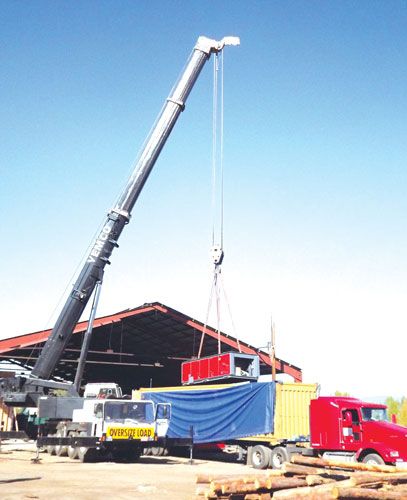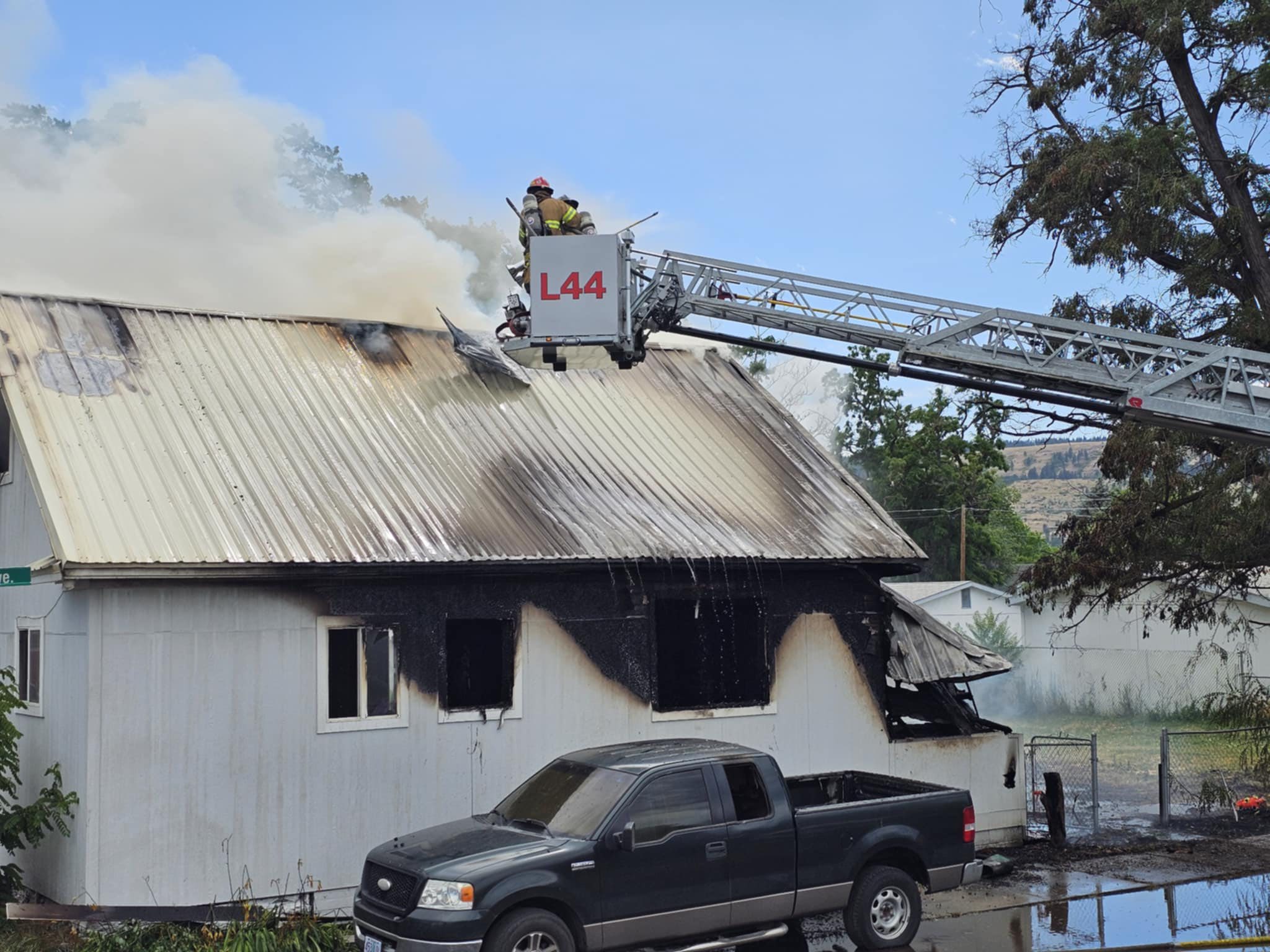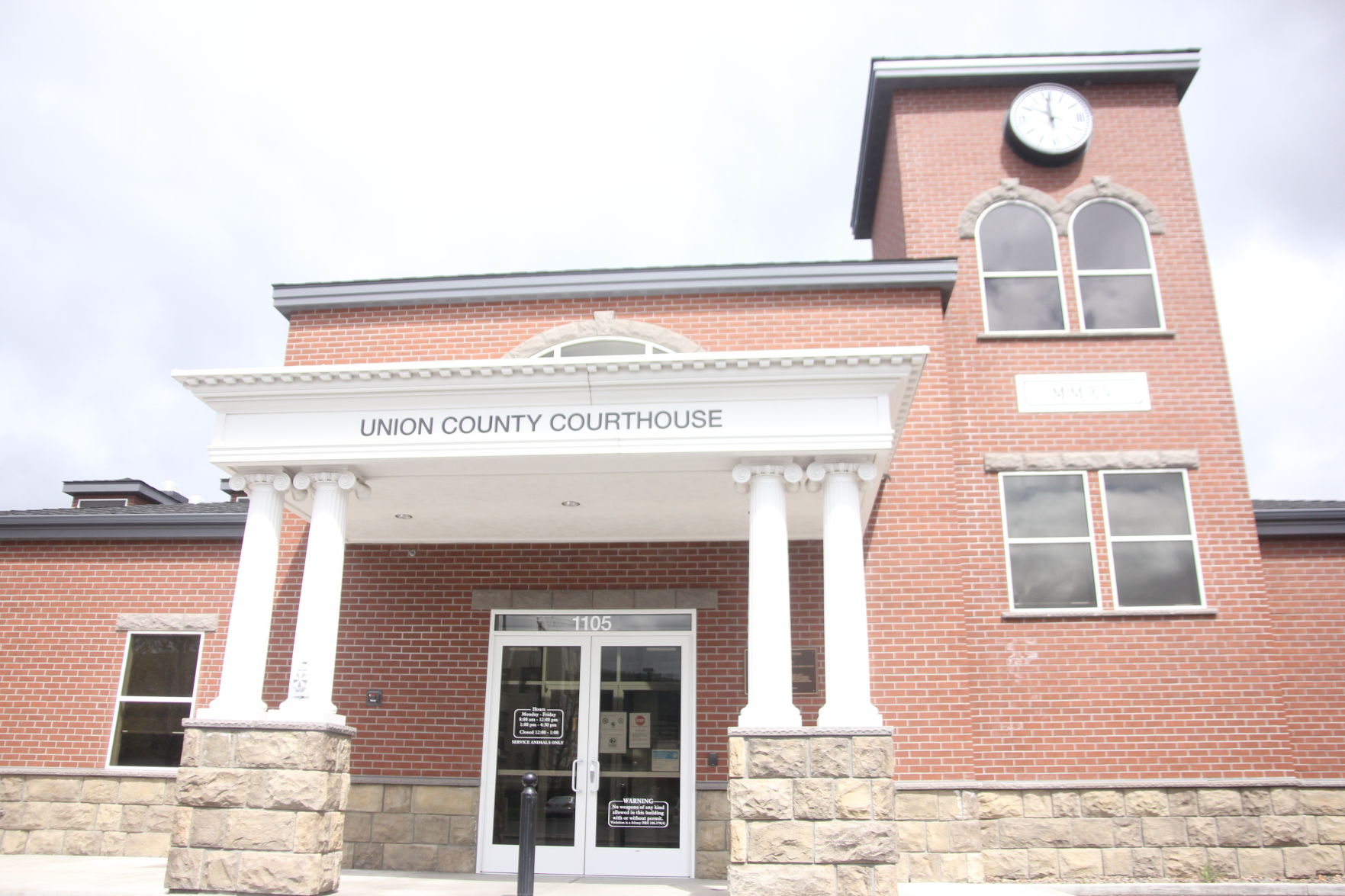Combustion chambers arrive at Wallowa biomass mill
Published 2:38 pm Wednesday, October 10, 2012

- Three combustion chambers were delivered to the Integrated Biomass campus Friday afternoon that will help power the mill and run a kiln that creates pest-free wood products. KATY NESBITT - The Observer
Long-awaited combustion chambers arrived last week that will power the Integrated Biomass mill in Wallowa.
Wallowa Resources of Enterprise raised more than $1 million in federal, state and private money to build a power plant at the Integrated Biomass campus in Wallowa. The power generated will offset the mill’s power needs and run its kiln.
The chambers were expected in to arrive in February, but the delivery date was pushed into March because of a production delay, said Nils Christoffersen, Wallowa Resources executive director. The kiln was built last winter and has been running off a wood-fired box that needed tending every six hours.
Meanwhile, the combustion chambers sat on a dock in Italy waiting to be shipped. Wallowa Resources paid a distributor for the chambers, but the manufacturer didn’t receive its share, delaying the completion of the power plant.
When the finances were sorted out, the chambers were shipped to Seattle where they hit another snag in customs. The wood crating in which the chambers were shipped were in question – is it pest-free wood?
The irony lies in the fact that the chambers will not only produce electricity, but also heat the kiln that creates pest-free products like firewood sold throughout the region.
Christoffersen said, “In the Pacific Northwest, pest-free certification is increasingly important to quell the spread of bark beetles and other
forest pests.”
Expecting delivery, Integrated Biomass scheduled Vemco, a local crane company, to unload and place the chambers. The threat of the delivery being delayed prompted a request for the assistance of Sen. Ron Wyden (D-Portland) and his staff to intervene with both customs and the longshoremen over the crating concern.
This time, the delivery date was met and Vemco unloaded the chambers Friday afternoon. Once the combustion chambers are installed, they will power up to 90 percent of its power needs.
Christoffersen said the federal and state departments of energy, Pacific Power’s Blue Sky program,the Energy Trust of Oregon, the U.S. Endowment for Forestry and Communities and some of Wallowa Resources’ own money were pooled to raise the $1.27 million needed.
The power plant will run on “hog fuel,” residuals of bark and scrap wood from the mill’s firewood, post and poles, and wood chip manufacturing.
It will produce 4.8 million British Thermal Units of heat and 100 kilowatt of electricity turning out 230 to 250 degrees of hot water. The electricity will offset power through a net meter agreement with Pacific Power, said Christoffersen.
“Over the course of a year if more is produced than used the credits will be donated to the low-income energy fund,” said Christoffersen.
Net metering, at best, will help the mill break even on its power bill, but is not designed to make money, said Christoffersen.
For several years private timberlands have supplied most of the wood products in Northeast Oregon. Without timber from public lands, mills that relied on two shifts to stay in operation closed and much of the equipment was sold. The last mill in the county to shut down was the D.R. Johnson Mill where Integrated Biomass now operates.
Last year the county bought the old mill and leases it to Integrated Biomass.
“The public/private partnership is creating a model that is being replicated, expanded and improved throughout the Northwest,” said Christofferesen. “These feeder sites support and maintain the remaining mill infrastructure.”
Christoffersen said at minimum the chips, firewood and posts and poles generate value to subsidize supplying saw logs to saw mills.
“The core concept is the opportunity to have product line diversity from small diameter to the highest value products including craft chips for pulp, hop poles, firewood and post and
poles for fencing,” said Christoffersen.
Making biomass power work has been a long-time goal in Wallowa County. Biomass power got off to a shaky start at the Enterprise School, but now meets 80 percent of the school’s total heat demands and has saved the district $103,000, which exceeded the debt financing and maintenance fees, said Christoffersen.
This summer the Wallowa Resources Stewardship Center in Enterprise converted to a wood-fired boiler that will save $50,000 a year in heating costs.









